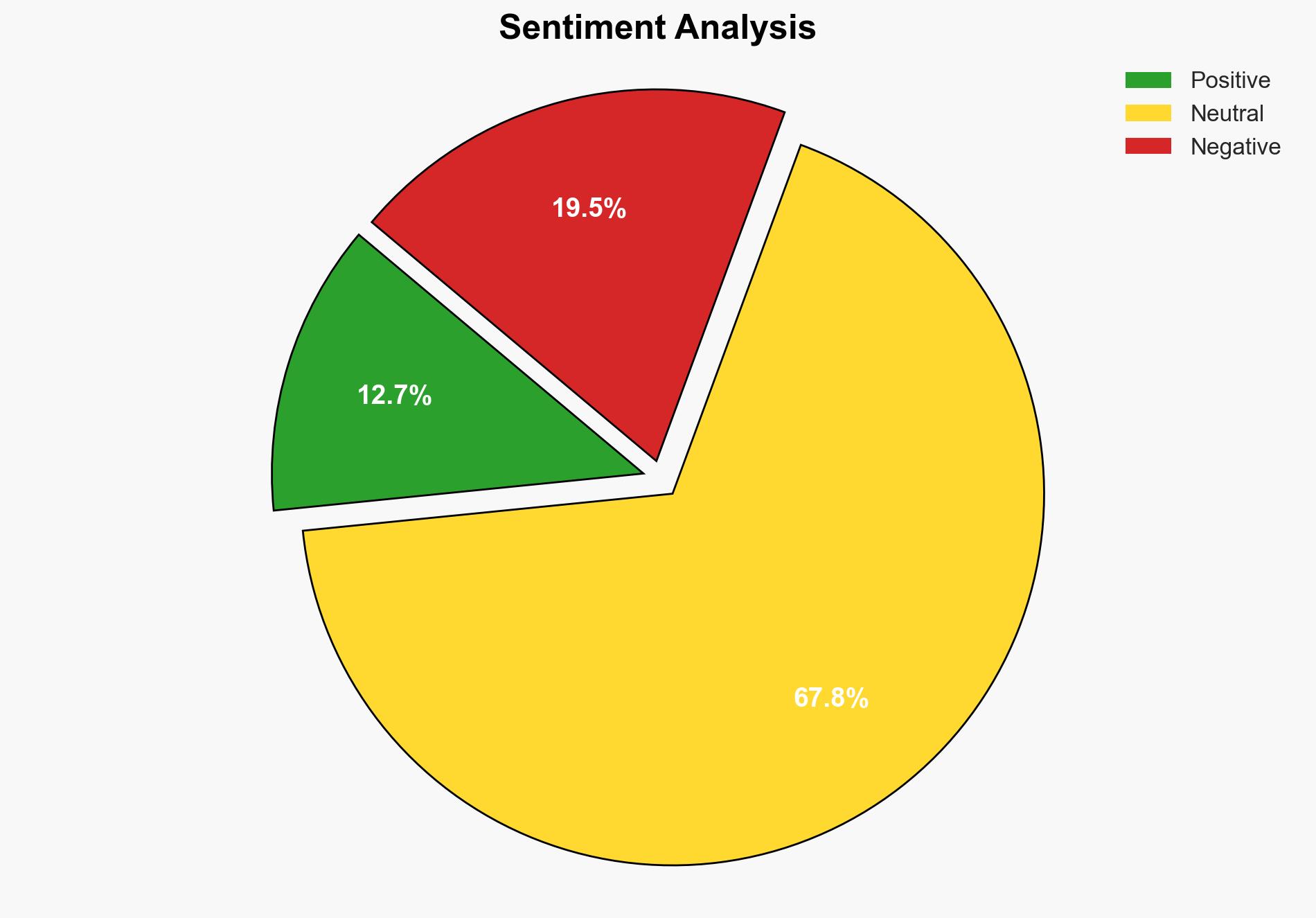Renewed fighting in DR Congo as regional powers step up ceasefire efforts – Al Jazeera English
Published on: 2025-03-25
Intelligence Report: Renewed fighting in DR Congo as regional powers step up ceasefire efforts – Al Jazeera English
1. BLUF (Bottom Line Up Front)
Renewed clashes in the Democratic Republic of Congo (DRC) have escalated tensions, with regional powers intensifying efforts to broker a ceasefire. The conflict, primarily involving government forces and Rwanda-backed rebels, has resulted in significant human toll and displacement. Regional mediators are actively engaged in truce talks, but the situation remains volatile. Immediate action is required to stabilize the region and prevent further humanitarian crises.
2. Detailed Analysis
The following structured analytic techniques have been applied for this analysis:
General Analysis
The conflict in the DRC, particularly in the North Kivu and South Kivu provinces, is driven by complex historical grievances and competition over mineral resources. Recent clashes have seen rebels, known as Wazalendo, reneging on withdrawal pledges, leading to intensified fighting near strategic locations such as Walikale and Lake Edward. The involvement of regional blocs like the East African Community and the Southern African Development Community highlights the geopolitical significance of the conflict. Despite efforts by mediators to revive ceasefire initiatives, the situation is complicated by longstanding regional tensions, particularly between the DRC and Rwanda.
3. Implications and Strategic Risks
The ongoing conflict poses significant risks to regional stability, with potential spillover effects into neighboring countries. The humanitarian impact is severe, with thousands displaced and at risk of violence. Economically, the instability threatens the exploitation and trade of the DRC’s vast mineral resources, which are critical to global technology supply chains. The conflict also risks escalating into a broader regional confrontation, drawing in neighboring states and potentially destabilizing the entire Great Lakes region.
4. Recommendations and Outlook
Recommendations:
- Enhance diplomatic efforts to facilitate dialogue between conflicting parties, focusing on addressing root causes such as resource control and ethnic tensions.
- Strengthen support for humanitarian aid operations to address immediate needs of displaced populations.
- Encourage regional cooperation to monitor and enforce ceasefire agreements, potentially involving neutral international observers.
Outlook:
In the best-case scenario, sustained diplomatic engagement leads to a durable ceasefire and gradual stabilization of the region. In the worst-case scenario, the conflict escalates, drawing in additional regional actors and exacerbating the humanitarian crisis. The most likely outcome involves intermittent clashes with ongoing diplomatic efforts, requiring continuous international attention and support.
5. Key Individuals and Entities
The report mentions significant individuals and organizations involved in the conflict and peace efforts:
- Muhindo Tafuteni
- Corneille Nangaa
- Felix Tshisekedi
- Evariste Ndayishimiye
- Yolande Makolo
- Olusegun Obasanjo
- Kgalema Motlanthe
- Sahle Work Zewde
- Uhuru Kenyatta
- Catherine Samba Panza





